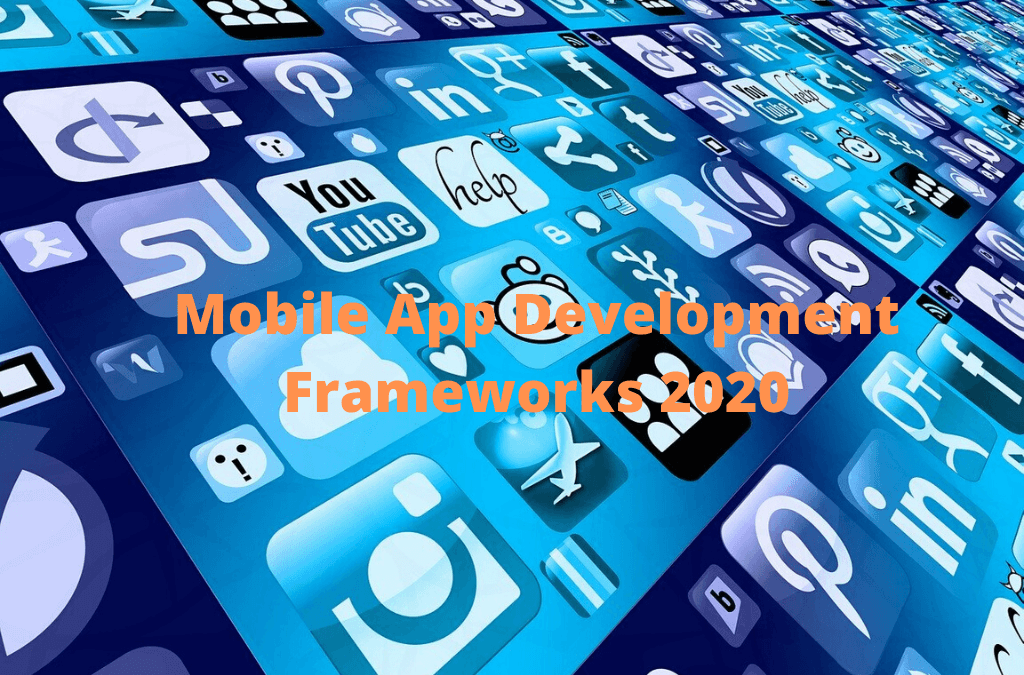Nowadays, a large percentage of users depend on mobile apps rather than desktop applications. According to a study, the number of hours users spent on browsing the internet is increasing year by year and that too into installing and accessing mobile apps.
This is the reason why big companies are shifting from desktop applications to mobile applications, which is considered the best way to reach the targeted audience.
The mobile app development companies are all set to hire mobile app developers that hold the expertise in the most trending technologies dominating the market right now.
Presently, a myriad of mobile app development frameworks have increased that permits mobile app development apps in limited time and cost.
For the users, there is a lot to think about in the year 2020.
But we’re always there to help you, in any case, no matter what.
Also Read: 4 Myths about Mobile Application development
Let’ go through some of the trending mobile app development frameworks that snatch your attention if thinking of mobile app development.
React Native: Top hybrid mobile app framework that developers love to work with
React Native is one of the most popular hybrid mobile app frameworks which was officially released to develop mobile applications in 2015. It natively renders mobile applications for Ios and Android developed by Facebook for building rich, beautiful and high-performance mobile apps developed on top of ReactJS and JavaScript.
With a single JS codebase, it permits developers to make creative mobile apps. It comes with Native modules and components which facilitate in boosting app performance.
Advantages of React Native
- Optimum code reusability
- Native code rendering
- Facilitates Node.js
- Easier Bug identification
- Node Packet Manager (NPM) installation makes it easy to use for growing developers.
- Less development time
- Plugins to enable compatibility with hardware device components
Disadvantages of React Native
- Not fully cross-platform app framework
- Needs improvement in accessing hardware components
- React Native lacks consistency in terms of releasing updates
- Increases the duration of the debugging process
- Shortcomings in the form of navigation components
- Insufficient custom modules
Flutter: Open Source Native Apps
Flutter is an open-source and free cost-platform framework for developing beautiful, natively compiled apps for mobile and web applications. It is a Google built framework that uses a single code base for iOS and Android app development. It facilitates faster coding.
Also, Flutter permits developers to modify old widgets and build new ones effortlessly.
Advantages of Flutter
- Flexible UI
- Fast reloading
- The Ideal framework for MVP development
- Supports widget style
- Native Performance
- Fast Development
- Cross-Platform Framework
Disadvantages of Flutter
- Latest technology not covered ground yet
- Use only Built-in widgets not platform widgets
- Developers need to learn Dart before implementing Flutter
- Some features have minimal support
Ionic: Superfast App Creation
Ionic is one of the popular cross-platform frameworks built with Angular and Apache Cordova. It develops iconic web applications for three different platforms i.e. iOS, Android and Windows. Using Ionic, it’s quite easy to build PWAs OR Progressive Web Apps.
Also read: A definitive guide to Mobile App Analytics
It helps developers to develop iconic and fantastic designs in the apps. It makes use of DOM to maximize performance and better efficiency.
The Ionic CLI is a tool that helps you in building hybrid apps with TypeScript and Node.js.
Advantages of Ionic
- Cross-Platform Framework
- Platform Independent
- Easy to Adopt
- Built on Angular
Disadvantages of Ionic
- No hot reloading
- Heavily dependent on the plugin
- Not the best for heavy apps
- Navigation designing is complex
Xamarin: Write once, run anywhere
Xamarin is an open-source framework launched in 2011 that uses the same code base for iOS and Android applications and provides an excellent user interface.
Xamarin is considered as the most intelligent frameworks used by the developers. The framework uses C# programming language means there is no need to learn Swift or Java to build iPhone and Android apps.
You can build hybrid apps with Xamarin to give equal performance and UX of a native app.
Advantages
- Work seamlessly on an array of platforms
- Follows Write once, run anywhere practice
- Uses a single tech stack for faster development
Disadvantages
- The framework is quite expensive for business enterprises
- Not recommended when apps built with heavy graphics
- Limited access to important libraries

Bottom Line
Well, in the end, all I can say that it’s going to be a tough choice for you to pick the best one from the given. You will get lost in the sea of options when comes to picking the right one.
But it all depends on your business requirements, budget and timeframe constraints. Cross-platform frameworks are worth enough to extend your market reach and save time, especially when considering React Native and Flutter.
I hope this post helps you in taking the best possible decision. For more details, I recommend you to consult a reputed web development company to make sure you are in the right direction.

Written by Tanya Kumari
Tanya leads the Digital Marketing Team at Classic Informatics, a leading web development company . She is an avid reader, music lover and a technology enthusiast who likes to be up to date with all the latest advancements happening in the techno world. When she is not working on her latest article on agile team dynamics, you can find her by the coffee machine, briefing co-workers on the perks of living a healthy lifestyle and how to achieve it.



















